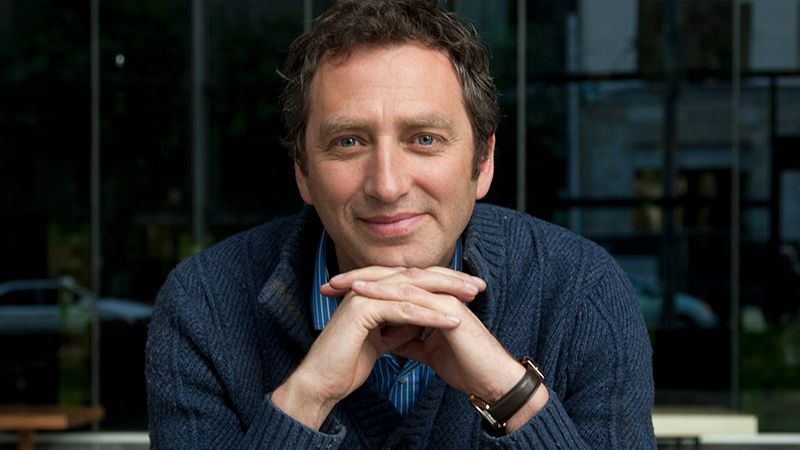
Two things brought Roly Gosling to his current work to eliminate malaria: a series of British children’s books he read as a boy and a conviction that he should put his vision and beliefs into practice.
The books, about a pilot-adventurer who traveled to exotic places, piqued his interest in working in tropical countries and steered him to a career in global health. His vision brought him to his current position as lead for the Malaria Elimination Initiative (MEI), a project of the Global Health Group in UCSF’s Global Health Sciences, and will take him to his next post in Namibia, also with MEI, later this year.
Gosling, an MD and a professor in UCSF’s department of epidemiology and biostatistics, began his global health career in Gambia where he studied anemia, which can be caused by malaria. After some years researching drugs for malaria and TB, he set up a program on malaria for the London School of Hygiene and Tropical Diseases in Tanzania.
“While I was in the field, I was annoyed by the typical approach to malaria,” Gosling said. “We found that there was much less malaria in Tanzania than was being reported, yet there weren’t many interventions in place. Malaria had declined in places that definitely had had a high burden in recent history. That led me to believe malaria elimination was a possibility – even in sub-Saharan Africa.”
At the same time, Richard Feachem, director of the Global Health Group at GHS, was voicing the same belief on the global stage. So when, in 2011, Gosling had the opportunity to join the Global Health Group’s Malaria Elimination Initiative and work with Feacham’s “Action Tank” model, he moved to San Francisco as MEI’s lead. “I felt I shouldn’t just talk about my vision, I should do it,” he said.
The Action Tank model is a comprehensive approach to research, analysis, policy formation, consensus building and evaluation that enables policymakers, funders and country leaders to gain access to new and relevant data, recommendations and tools and make informed decisions about the next important steps in strategy, funding and implementation.
“Through our mode of working, we affect practice, strategies and policies at the national, regional and global level. Then we follow up to make sure those changes in strategies or policies are working,” Gosling said.
As MEI lead, Gosling manages a group of more than 50 faculty, researchers and staff–malaria scientists, spatial epidemiologists, health economists, clinical trial researchers, and public health specialists–setting strategy and ensuring that their work is based on solid scientific evidence.
“Roly encourages outside-the-box thinking and values rigorous but practical research, always considering the realities of malaria elimination on the ground,” said Allison Tatarsky, senior program manager, vector control. “He puts his trust in and support behind MEI’s researchers, program managers, and operations teams, setting everyone up for success.”
He also collaborates on research regarding mass drug administration, vector control strategies, surveillance and response strategies, and ways to improve program management.
“Our work has always been impact-driven, so programs getting to zero malaria is our goal,” Gosling said. “To get to zero, we have to get the right interventions to the right people at the right time. Clinical trials alone don’t get to that.”
He believes that being on the ground enables the MEI team to focus on the reality the programs face in eliminating malaria and to be more responsive to their challenges.
“The bit I love about this work is talking to the program people and learning what the real problems are,” Gosling said. “You go to a clinic or district office and the people don’t have what they need to do their work. I like to find the solution and then find the funding for it.“
So, in September, Gosling and his family will move to Windhoek, Namibia, where he can continue to put his vision into practice, this time leading MEI’s fieldwork in sub-Saharan Africa.
There he’ll work with the University of Namibia, with regional and national governments and ministries of health, and with the Elimination 8— a coordinated, eight-country effort to achieve malaria elimination in four countries in southern Africa (Botswana, Namibia, South Africa, and Swaziland) by 2020 and pave the way for progressive elimination in four additional countries (Angola, Mozambique, Zambia, and Zimbabwe) by 2030.
Having Gosling in southern Africa will also be a plus for the MEI team in San Francisco, Tatarsky said. “It will improve the linkage between the team in San Francisco and work on the ground, ensuring MEI remains focused on solutions needed in real time by malaria programs.”
“Great eliminators in history, like Fred Soper, Bill Foege, and Peter Roeder. All became leaders in elimination by being field-based,” Gosling said. “If I feel strongly about elimination, then I must do it. That’s what drives me. For me personally and for my professional growth, I need to get back in the field.”